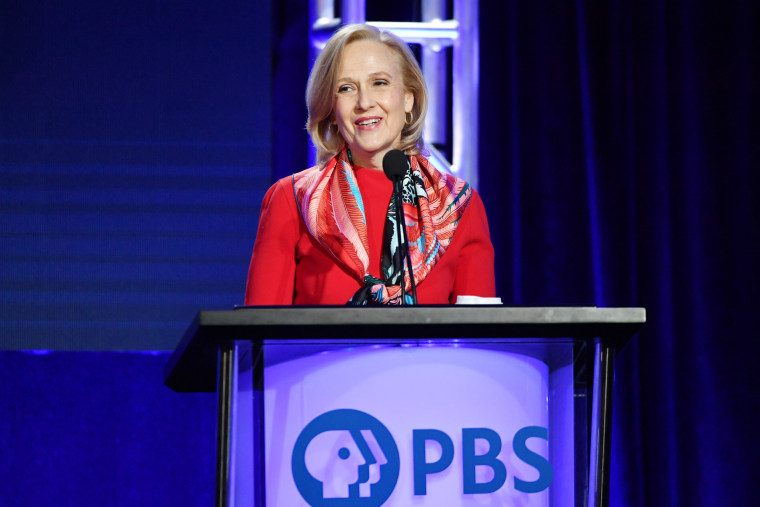PBS, the media organization that calls itself “America’s largest classroom,” marked its 50th anniversary amid the global Covid-19 pandemic last year. During this time, PBS not only covered news during a truly uncertain and historic moment, but the organization set out to meet another pressing challenge: to fill the educational void that dropped out into the open and became a reality for millions of children as in-person learning was abruptly replaced by remote learning.
Know Your Value’s Mika Brzezinski recently chatted with Paula Kerger, the longest-serving president and CEO of PBS, to learn more about how PBS helped to close the gap for children who don’t have broadband access and rise to the challenge of providing a robust offering of educational content. Kerger also shared insight about how she led the organization and kept morale up during this challenging time.
As the PBS chief recounted, the network’s staff shifted to a largely remote workforce within about three days last March, but the biggest pivot for the organization was centered around content. Kerger said she received a call from Austin Beutner, Superintendent of the Los Angeles Unified School District, who was concerned about all the school-aged children who would not have access to broadband during the pandemic.
She was confident that her team had all the right measures in place to rise up to this challenge. Kerger immediately focused in on the network’s large broadband-based educational service and funneled that content into broadcast programming. In 2017, Kerger led the historic launch of the PBS KIDS 24/7 broadcast and streaming channel. This provided a solid footing for what PBS would provide to children during the pandemic.
“Our California stations quickly came together and began to roll out a fairly aggressive scope of work to help close the gap for kids that don’t have access,” Kerger said. PBS also focused on putting out curriculum-based K-12 educational content.
Throughout the pandemic, PBS focused on “everything from content related to COVID to content to help people that are missing performances and things they might have had in their life, to a wide range of programming that we brought forward after the murder of George Floyd,” Kerger said. The team leveraged the resources that they had already built and extended them to meet the needs for viewers.
RELATED: 5 ways parents can address their kids' mental health fallout from the past year
Indeed, during the first months of the pandemic, traffic to PBS LearningMedia doubled to 4 million unique visitors. Each month, over 100 million people now tune into their local PBS stations, while more than 32 million consumers watch video on PBS’s website, apps and social media. Some of their most popular platforms include PBS Passport and the PBS Video App.
Kerger, who joined PBS in March 2006, explained to Brzezinski some of the lessons she learned about leading through a pandemic. “You have to remember that people are all in their homes, some are juggling families and children, some of them are living alone [and] people feel isolated,” she said. "There was so much swirling around them, particularly in the early days.” Flexibility and having empathy for what others were experiencing, along with a shared sense of purpose, she added, went a long way.
“The most important piece that I would share for anyone looking back on this period and wondering how did you manage through, is a relentless commitment to education,” Kerger said.
